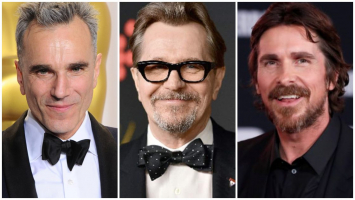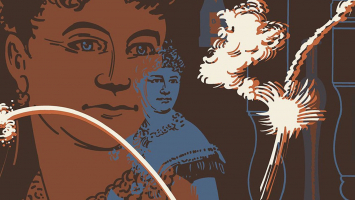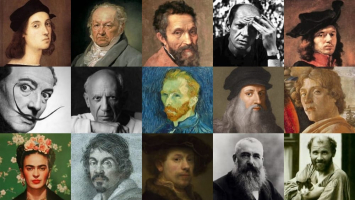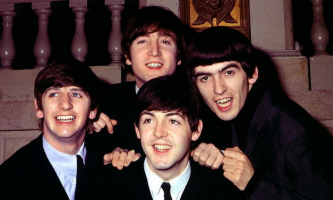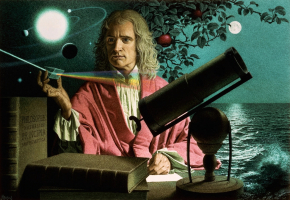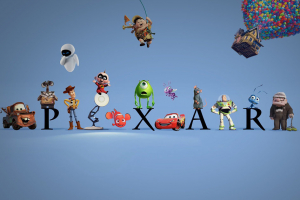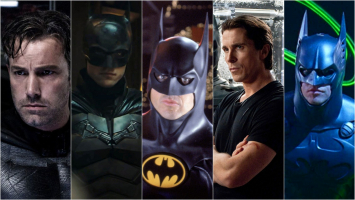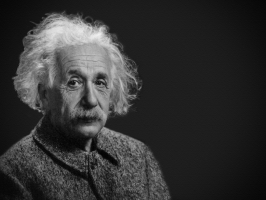Top 10 Greatest Classical Composers Of All Time
Pioneers, practicing enthusiasts, and a slew of geniuses can all be found throughout the history of classical music. Below, we've done our best to condense ... read more...these outstanding composers into a list of the top 10. They'll give you the best possible introduction to classical music, so check out the list of the greatest classical composers right now.
-
Ludwig van Beethoven is widely regarded as the most influential and famous composer of his time.
His music was ahead of its time, which set him apart from his contemporaries. He built greater structures, explored more topics, and composed symphonies that were louder, longer, and more exciting than any that had come before. He also pushed harmonic experimentation to new heights, going against the Classical period's basic harmony.
As a result, he played a crucial role in the transition between the Classical and Romantic periods of music. Simply said, he broadened the emotional range of music.
Between 1802 and 1812, Beethoven's 'heroic' phase, he is said to have attained his pinnacle. He composed his Fifth Symphony, Violin Concerto, Moonlight Sonata, and the opera Fidelio — his only opera – during this time.
His hearing began to deteriorate in 1813, and by the age of 44, he was fully deaf. Despite this, he continued to compose, and in the later years of his life, he completed the famous Symphony 9. This includes the Ode to Joy, which was designated as the European Union's "anthem of Europe" in 1985.
Beethoven, like many brilliant musicians, was a complex and tortured man. He had a difficult upbringing in addition to being deaf. His father was violent, and his mother died of TB when he was only sixteen years old. He pondered suicide later in life and never married.
Beethoven's compositions are undeniably influenced by his experiences with adversity. They depict stories of upheaval, strife, hope, and elation at various points - emotions we can all relate to.
Nationality: German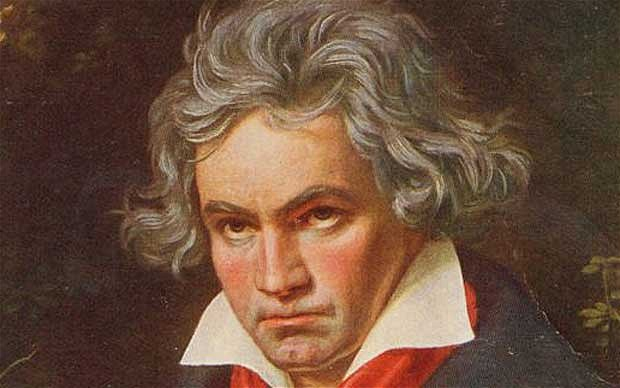
Photo: HOANG VAN ART Video: andrea romano -
When it comes to musicians, the label "genius" is overused, but it barely gives Wolfgang Amadeus Mozart justice.
The Austrian is largely regarded as the greatest composer of the Classical period, as well as one of the finest composers of Western music.
He was one of the few composers in history to write works in every genre of his time, as well as one of the top two most-performed composers of all time, and he composed 626 pieces of music in his short life.
He composed his first composition, a Minuet, and Trio in G Major when he was just five years old. He could copy Italian composer Gregorio Allegri's Miserere, a 15-minute composition, from memory at the age of 14.
These early indications of promise foreshadowed what was to come. Mozart went on to conquer the globe, writing masterpieces such as:
- The Marriage Of Figaro, one of his greatest operas
- Symphony No. 41, one of his most famous symphonies
- Piano Concerto No. 24, widely considered his best piano concerto
- His Clarinet Concerto in A Major, his last instrumental work
While Mozart's life was marked by achievement, for the most part, it ended under questionable circumstances. He died at the age of 35, and the cause of his death is still a mystery. Some say he was poisoned by his colleague Antonio Salieri, while others claim he died of rheumatic illness.
Unfortunately, much of Mozart's music remained unreleased at the time of his death, yet it has proven to be timeless. Mozart has recently outsold Beyonce, Adele, and Drake. And that's not all: one of his early manuscripts was sold at auction for a whopping £318,400. This encapsulates everything you need to know about his legacy.Nationality: Holy Roman Empire
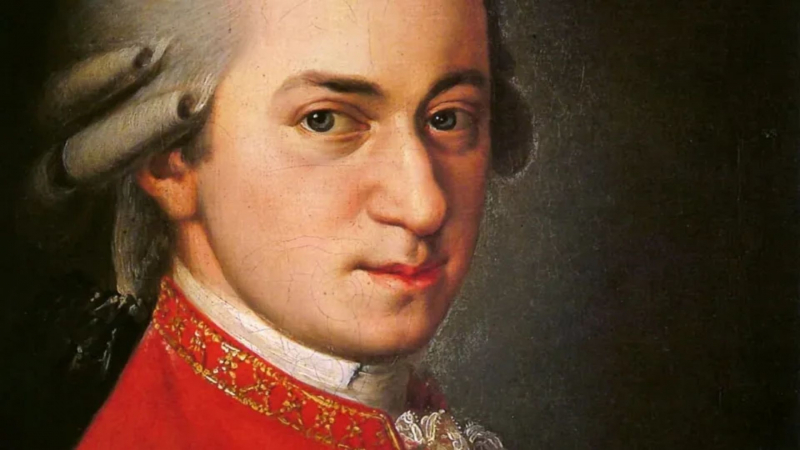
Photo: Páginas de Delphi Video: Pau NG -
Johann Sebastian Bach is widely regarded as the most accomplished composer who ever lived. For BBC Music Magazine, nearly 200 of the world's best composers voted him the Greatest Composer of All Time.
While such assessments are subjective, it is undeniable that the Germans irrevocably impacted music. It's nearly impossible to explain how in a few hundred words, but we'll try...
To begin with, Bach was precise. His music is frequently seen as a science, with a precision that is almost mathematical. The mastery of discordant sounds, the smooth integration of melodic patterns, and the clear synchrony between counterpoint and harmony are all present. Bach was the only one who had perfected these aspects at the time.
Second, he was a hard worker. He composed an amazing 1,128 pieces of music throughout his 65-year career, including 200 cantatas.
He was also a pioneer. Rhythms, shapes, and textures from other countries, particularly Italy and France, were incorporated into established German styles. Beethoven dubbed him the "Father of Harmony," and he influenced Mozart, Chopin, and Brahms greatly.“There's a bigness, an optimistic complexity, and relish about Bach that makes me return to him in all moods, without ever getting bored. That's about all I can say” stated commentator Andrew Marr.
But think of what could have been. During Bach's lifetime, he was more renowned as an organist, and just a few of his pieces were published in the 50 years after his death. His art was only properly acknowledged and resurrected towards the turn of the nineteenth century.
Keyboard works like The Well-Tempered Clavier and the Brandenburg Concertos, as well as vocal music like St Matthew Passion, are among his most well-known works. Listen to the closing chorus of this tune above to realize why Bach is so remarkable.Nationality : German
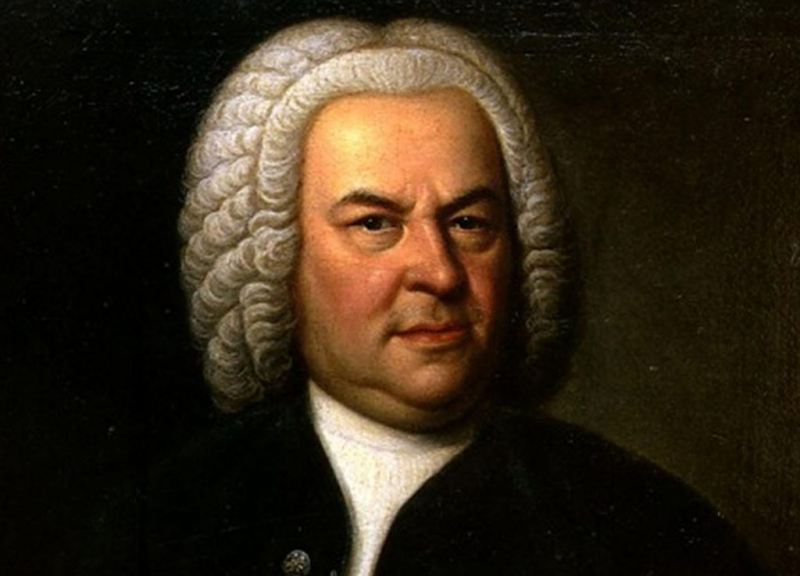
Photo: HOANG VAN ART Video: Malmö Kammarkör -
George Frederic Handel is regarded as one of the greatest classical composers of the Baroque period, alongside Bach, Vivaldi, and Monteverdi.
Handel was born and raised in Germany but only stayed until his early twenties. He is most known for his operas, oratorios, and organ concertos. He spent a few years in Rome before relocating to England in 1710, where he remained for over 50 years until his death.
Handel's music would be shaped by these decisions. Starting with his breakthrough piece Rinaldo in 1710, he composed largely Italian operas early in his career. However, as tastes changed and Italian opera fell out of favor, Handel turned to oratorios, influenced by English composer Henry Purcell's choral compositions.
Messiah, an English-language oratorio written in 1741 that portrays the story of Jesus Christ, exemplifies this. If you've never heard it before, you'll recognize it as soon as you hear it. This is Handel's most well-known work, as well as one of the most regularly played classical works in Western music.
Alexander's Feast, which led to Handel's departure from Italian opera, and Zadok the Priest, which he produced for George II's coronation, are two of his other important works. Handel served as a 'Kapellmeister' (musician in charge) for the King at one point.
Furthermore, his music had a significant influence on Mozart and Beethoven. You could do a lot worse in terms of legacies.Nationality: United Kingdom of Great Britain and Northern Ireland, Germany
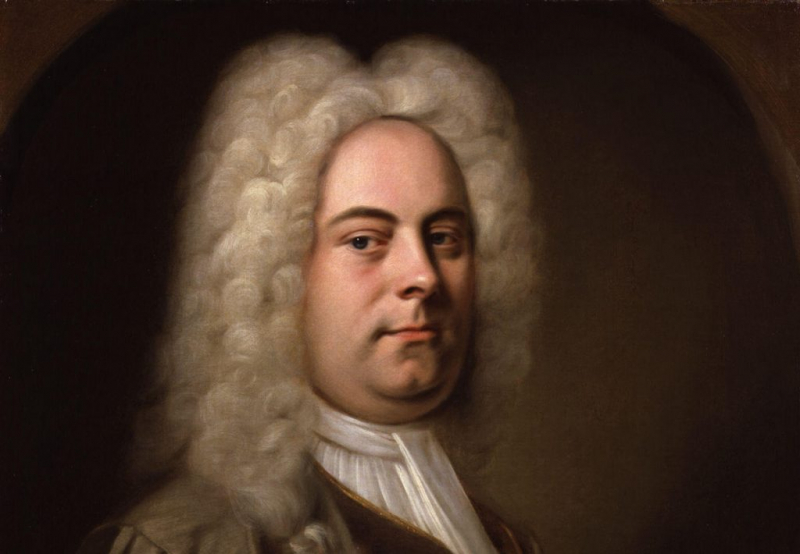
Photo: HOANG VAN ART Video: Music for Insomniacs -
Given that we've mentioned Pyotr Ilyich Tchaikovsky multiple times, it's only right that we go deeper into his musical achievements.
Rachmaninov and Prokofiev had a big influence, but Tchaikovsky was the first Russian composer to gain international renown. His path to fame, on the other hand, was far from smooth.
In the event that his musical career did not take off, he began his working life as a public servant. Thankfully, he didn't have to use this backup plan for long. A new school, the St. Petersburg Conservatory, opened when he was 21. Tchaikovsky enrolled, graduated in 1865, and hasn't looked back since.
His education was based on Western traditions, which was evident in his works, which blended parts of Russian folk music with German, Italian, and French styles. Tchaikovsky's approach placed him distinct from his countrymen, such as 'The Five.'
Symphonies, concertos, operas, ballets, and chamber music were among his works. The 1812 Overture, as well as The Nutcracker, one of his final ballets, are among his best-known works. There's also Swan Lake, The Sleeping Beauty, and so on.
You'll hear plenty of colorful, warm, and grandiose overtones in whatever Tchaikovsky composition you listen to.Nationality: Russian
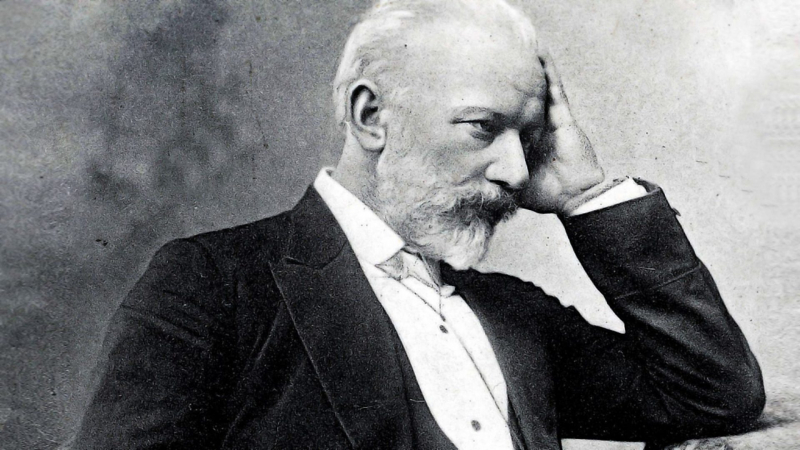
Photo: Nhaccodien Video: Masoud Dalvand -
With a death date of fewer than 50 years, Igor Stravinsky is the most recent composer on this list of the greatest classical composers of all time.
Stravinsky, often recognized as the most influential composer of the twentieth century, was a rebel who pushed limits and changed his approach throughout his career. Russian (1907– 1919), neoclassical (1920– 1954), and serial (1954– 1968) are the three periods in which his music can be divided.
His flexibility was further demonstrated by the fact that he could compose in almost any genre. His ballets, the most famous of which is The Rite of Spring, are what he is best known for. Due to its bold technical innovation and controversial choreography, it is thought to have created a riot when it premiered in Paris in 1913.
However, it had a more positive long-term influence. Karlheinz Stockhausen and Steve Reich are two examples of composers who were influenced by the piece's crunching harmonics, irregular meter, and strong rhythmic stress.
The Rite of Spring was one of three ballets that made Stravinsky famous, with The Firebird and Petrushka being the other two.
Despite the fact that his technique evolved throughout time, he continued to create classics like Oedipus Rex, The Rake's Progress, and, towards the end of his career, Agon.
His compositions profoundly influenced the trajectory of music for more than half a century. Simply put, they illuminated the globe.Nationality: Russian, French (from 1934), American (from 1945)
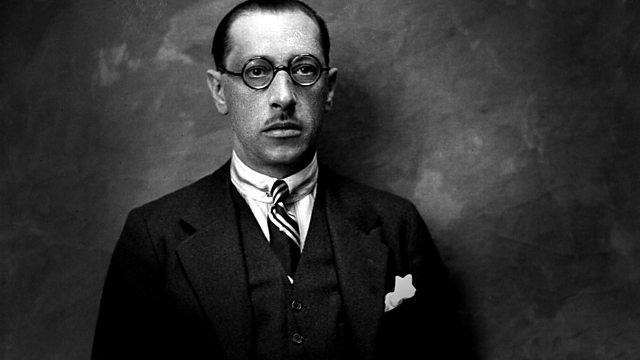
Video: Cmaj7 -
Gustav Mahler's life story is remarkable. He was better renowned as a conductor during his lifetime, despite writing some of the best symphonies since Beethoven and being considered one of the most influential late Romantic composers.
After being rediscovered in the mid-twentieth century, Mahler's work gained global acclaim. Due to his Jewish ancestry, his music was banned from being performed throughout much of Europe during the Nazi era. It was considered 'degenerate,' and could only be performed by Jewish musicians for Jewish audiences in Europe.
The world could only recognize Mahler's mercurial brilliance following the intervention of American composer Leonard Bernstein.
He was a bright philosopher who was particularly fond of Friedrich Nietzsche's writings. As a result, his music was equally concerned with death, terror, life, and joy. While this technique may have turned off some audience members in the late 1800s, it now epitomizes his appeal.
Three of his symphonies were voted among the top ten symphonies of all time in a BBC Music Magazine poll of 151 conductors in 2016.Nationality: Austrian
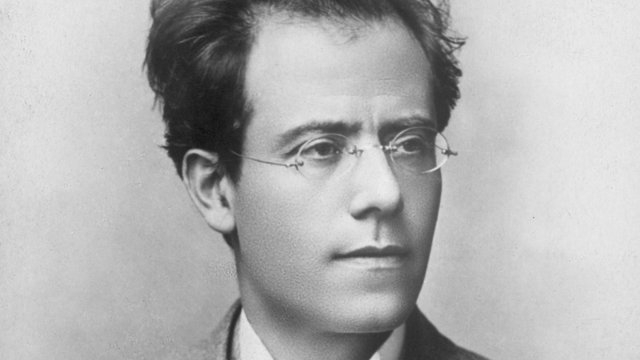
Photo: Classic FM Video: greatclassicrecords -
You don't have to be a fan of classical music to know who Richard Wagner is. You've passively connected with his work if you've ever sang 'Here Comes the Bride' (from Wagner's Lohengrin) or seen the helicopter attack scene from Apocalypse Now including Ride of the Valkyries.
These are just two examples of Wagner's profound influence on Western music. He elevated the operatic form by experimenting with complex harmonic structures and orchestration, as well as producing epic, large-scale works like The Flying Dutchman.
He even advocated for the concept of Gesamtkunstwerk, which translates to "whole work of art." This was a reaction to what Wagner saw as the limited nature of Italian opera and aimed to blend music and drama.
Wagner's work, despite being German, can be defined as pan-European due to its universal appeal. This is demonstrated by the Bayreuth Celebration, an annual festival dedicated solely to his works that attract tourists from all over the world.
However, it's reasonable to assume that not everyone during his career was a 'Wagnerian.' He was dubbed an "ancient poisoner" by Debussy, and he had a long-running feud with his compatriot Brahms known as "The War of the Romantics."
Regardless of his peers' feelings toward him, no one could dispute Wagner's influence in the mid-to late-eighteenth century and beyond.Nationality: German
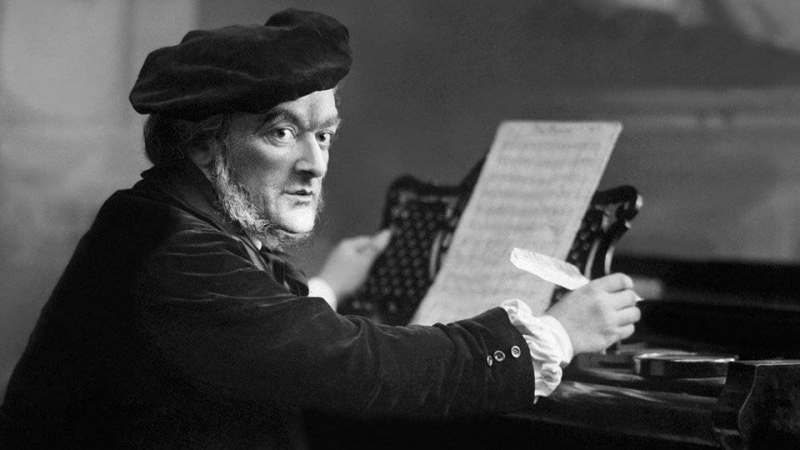
Photo: nhaccodien Video: GBopera Channel -
Finland, believe it or not, has produced a slew of renowned composers. However, Jean Sibelius is by far the most well-known of the composers.
Finland was a part of the Russian Empire when Sibelius initially rose to prominence as a composer. The country gained independence in 1917 when he was at the height of his glory. His music is credited with assisting Finland in overcoming Russian control by instilling a strong sense of national identity in his homeland during a moment of tremendous struggle.
The Kalevala, a compendium of Finnish folklore, poetry, and mythology, inspired many of Sibelius' compositions. Finlandia (above), a tone poem written in protest of the Russian Empire's censorship, was one of his works. Along with pieces like the Karelia Suite and Valse triste, this composition helped put Sibelius (and Finland) on the map.
His Symphony No. 2 was described as "vulgar, self-indulgent, and provincial beyond all description" by the New York Herald Tribune. “Pay no attention to what the critics say; no statue has ever been put up to a critic,” the great man once said.Nationality: Finnish
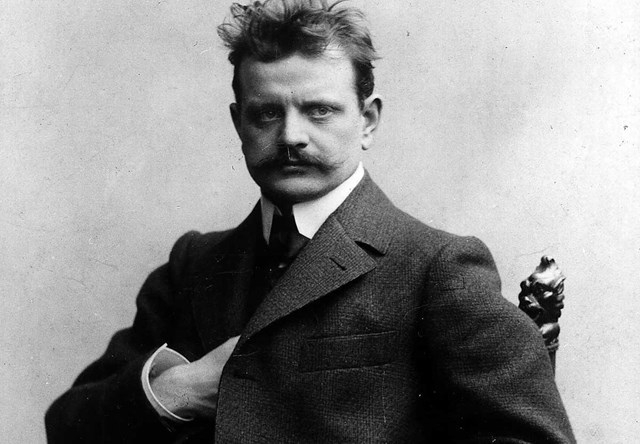
Photo: SenfonikAnkara Video: S.P.'s score videos -
Claude Debussy's backstory is as fascinating as his music. He got admitted to the Conservatoire de Paris at the age of ten, despite coming from a poor neighborhood in Paris. As they say, the rest is history.
Debussy is regarded as the first impressionist composer in the world. It would have required a brave individual to tell him this, for he dubbed impressionism "imbecilic."
Whatever his feelings were, his music echoed the ideas of impressionist painters like Claude Monet at the time. Debussy's music, like Monet's paintings, blurs the lines and produces new harmonies in ways that give his music a dreamy, colorful, and atmospheric atmosphere.
It was essentially French and a reaction against the Romantic era's Germanic music, which was characterized by form and development.
Clair de Lune, the third movement from Suite bergamasque, is a favorite with listeners all across the world, and it exemplifies this. Its title, which translates as "moonlight" in French, is based on a poem by French author Paul Verlaine of the same name.
Prélude à l'Après-midi d'un faune, La Mer, and Images are among Debussy's numerous defining pieces. These give you an idea of what the great guy was capable of.Nationality: Russian
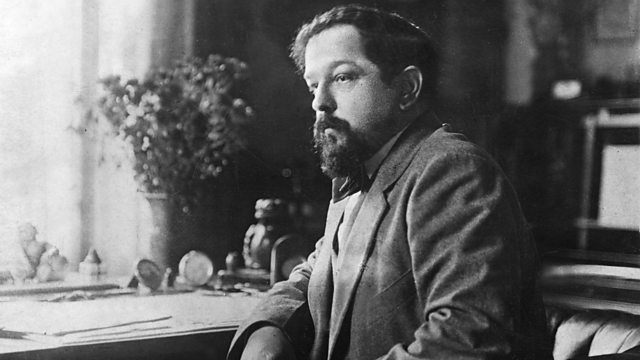
Photo: BBC Video: Iceland Symphony Orchestra













